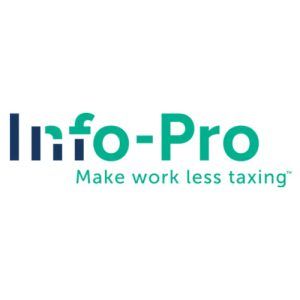Introduction
Even in cases where escrow is not required, many borrowers find convenience in having their financial institution take care of paying the property taxes and insurance on their property. Banks can also find escrowing beneficial as they can be sure the property taxes and insurance are being paid on time. However, tracking and gathering the property tax data needed to make these payments correctly, then actually making those payments, can be a massive undertaking.
Banks that do not currently deal with any escrowed loans, or only have a few, can be caught off guard when it comes to mergers and acquisitions. An institution may only have mortgages in one or two states. However, after acquiring another institution, that bank can suddenly be faced with mortgages in new geographical areas where they have no experience in gathering and paying property taxes. Going through an acquisition can also drastically increase the number of escrowed loans in the organization’s portfolio, requiring more staff and resources to keep up with tracking and processing escrow amounts.
The prevalence of escrowed mortgages appears to be increasing as well, based on data from Info-Pro Lender Services. Over the past five years, Info-Pro has seen escrowed loans being added to their system increase at a 40% higher rate than non-escrowed loans. The increase in first-time homebuyers coupled with an increase in government-backed mortgages is a likely driver of this increase. Furthermore, as millennials enter the homebuying market, it can be expected that many of them will require escrow due to having smaller down payments. This means that banks will need to have a robust property tax tracking and escrow processing solution in place to make sure they stay compliant and manage risk.
Property Tax Nuances
There are currently over 26,000 taxing agencies in the United States. Each one of these taxing agencies can have wildly differing nuances for gathering property tax data as well as how to make property tax payments. If a bank has escrows, they are the ones responsible for making sure the property tax amounts are accurately researched and payments to the correct taxing agency are made on time. Doing so can become even more complicated when tax bills are required for payment. Let’s look at some of the property tax nuances banks may encounter
Due Dates
Property tax due dates are extremely important for banks to understand. They inform them as to when property taxes are due, how early an institution needs to start looking for tax amounts, at what point funds for payment will need to be certified, and when the institution’s servicing department will be busiest. What makes due dates challenging is that they vary from agency to agency, by the number of installments, and in certain locations, can change from year to year. Let’s look at some examples:
- Installments
Some tax agencies vary between offering one, two, or more installments for property tax payments. With two-installment agencies, these due dates can either be in the same calendar year or straddle two years. When reaching out to these agencies to get tax amounts, it’s important that institutions understand which tax year to refer to. While some states’ due dates seem straightforward, as soon as you start crossing into other states the complexity can grow. For example, in Colorado, there are typically just one or two installments, but different counties can set their own due dates and installments. It is important for banks to keep up with researching and making sure to stay on top of changes in installments. Moving to other areas of the country where there are municipality level payments, a financial institution might encounter one city with two installment dates and another with ten. - Due Date Variation
A perfect example of an area where due dates change from year to year is the state of Texas. Texas is a municipality level state, meaning that each city or township sets their own due dates and discount dates. Often the only way for a financial institution to know what the new dates are is to call the agency or check their website (if they have one) every couple of weeks until the local government has set the new dates.Another due date variation is discount dates. These are essentially due dates that come a month or two ahead of the normal due date, and by paying by this date, the financial institution or homeowner will get a percent discount on their property tax amount. Understanding these discount dates and making timely payments can save a substantial amount of money on high-valued properties.
- Installments
Gathering Property Tax Data
Once the bank understands the due dates and installment rules for where they have mortgages, the next step is finding and gathering the property tax data for each property. Each taxing agency may offer one or several of the following methods for gathering tax info, each with its own pros and cons:
- Websites: Many larger agencies will have property tax portals that allow anyone to search for property tax information by a range of criteria.
- The benefits of websites are that they are typically more up-to-date, allow on-demand access, and often offer the ability to see historical data for the property.
- The downsides to websites include the possibility of per-parcel search fees, the site not being updated regularly (old data), only displaying the billed or due amount, downtime for maintenance, and data errors.
- Tax Rolls (Excel file, PDF scan, Paper Reports): Agencies of all sizes can offer some form of tax roll. These vary from Excel files to scans of paper reports or, in some instances, physical paper reports that must be mailed to you.
- Benefits of tax rolls include being able to easily search the entire agency’s database on one screen, easy copy/pasting of data from the tax roll to another database, custom sorting, and the fact that most employees are familiar with using Microsoft Excel.
- Cons of tax rolls are that they can sometimes cost thousands of dollars for a single tax roll, may come unformatted, have large file sizes, don’t contain all the data needed, or are out of date.
- Fax, Email, or Phone: More common amongst smaller taxing agencies, banks may have to request property tax data via fax, email, or a phone call and then receive the results via that same method.
- Benefits of these methods are limited. Email is typically the best of these options as there is a digital record of the information and it can be copied/pasted from the email into a database.
- Cons of fax/email/phone are that the data can contain mistakes by the person at the agency providing the information. When it comes to phone calls, both the financial institution employee and the tax agency employee must be accurate in communicating and recording the data they’re looking for. These methods also require connecting with the right person at the agency, which can be especially difficult when an agency has odd office hours.
- In-person (becoming increasingly rare): Luckily, there are only a handful of these agencies left in the country. There are really no pros to this approach, and it is recommended that banks find other means of getting tax data whenever possible.
- Websites: Many larger agencies will have property tax portals that allow anyone to search for property tax information by a range of criteria.
Regardless of which method a bank uses to get the data, the timing of when that data will become available can be tricky. In some cases, tax amounts may not be made available until as short as 2–3 weeks before the due date. Once the data is made available, agencies can and do make mistakes, resulting in adjustments to tax amounts well after they’ve been “certified.” When this happens, institutions will need to reach back out to the tax agency to gather updated amounts and communicate this to their borrowers.
Lastly, gathering the tax data needed to make escrow tax payments includes one final hurdle: the human element. Smaller tax agencies often use local collectors. These individuals are sometimes collecting taxes out of their homes, many times with limited or no technological systems to support the data collection process. In addition, in some cases, the collector may only be open for a couple of hours per week.
Making Payments
Now that the bank has learned about the due dates, discount dates, installment information for all the agencies where they have parcels, and gathered the relevant tax information, it’s time to make the tax payments to each agency. Payment collection can be one of the more difficult aspects of escrow tax processing.
Texas, for example, has multiple districts that may or may not collect their own portion of property taxes, often requiring the financial institution to go to multiple departments to get the entire tax amount owed. Special districts include central appraisal districts, drainage districts, municipal utility districts, etc. Sometimes the county will collect for all entities, sometimes the Central Appraisal District collects for all entities, and in some instances the County and the CAD split the collection, meaning the financial institution needs to cut separate checks to each.
When the financial institution goes to make the payment(s) to the taxing agency, there will be different options for how to pay based on the discretion of the agency. Some of the common methods include:
- Excel list of all parcels to be paid along with individual checks for each property
- Excel list of all parcels to be paid along with one check that covers all properties
- Electronic submission of payments via an intermediary such as GovTech or Autoagent
- Submission of property tax bills with a check for each individual property
Tax Bills, Rules & Fees
Another area of complexity is taxing agency guidelines around tax bill rules and fees. These also vary from region to region, but there are some common themes financial institutions will encounter.
Duplicate bill fees are common throughout the country. These occur in agencies where the tax bill must be submitted along with payment. Tax offices can charge high duplicate bill fees that can reach as high as $25 per tax bill.
When requesting tax bills, it is possible to encounter tax offices that will outright refuse to provide duplicate tax bills to any third party — including the financial institution that holds the mortgage. In these cases, the property owner, and only the property owner, will receive the tax bill information. Banks must coordinate with their borrowers to get the tax bill to remit payment to the taxing agency.
Fees aren’t just limited to duplicate tax bills. Other common fees include per-parcel payment fees, wire fees, pay file fees, etc. Whether or not an institution will have to pay these fees depends on the agency and the method of payment.
Conclusion
The complexities of escrow tax processing are immense, especially when you have mortgage portfolios that cross state lines. The key to making timely and accurate payments while keeping both the borrowers and taxing agencies happy is research. Learning the nuances in each area a bank has parcels and keeping a detailed record of those nuances year-over-year will help ensure that property tax season goes smoothly for any financial institution, and that costs and penalties are kept to a minimum. An institution’s portfolio size and how far it stretches geographically will inform how much of an undertaking this will be, and how much staff will be needed.
If all of this seems like a bit too much to manage, there are third-party escrow tax servicing vendors that can take this off a bank’s plate. Finding a vendor to outsource escrow tax processes will decrease workload, reduce missed payments, and streamline the payment and refund process so staff can focus on other key tasks while ensuring the mortgage portfolio is up to date.
Info-Pro takes the complex and makes it easy. We collect and integrate data from the 26,000+ property tax authorities nationwide into a user-friendly software platform, enabling financial institutions to easily identify property tax delinquencies and pay escrow taxes.








